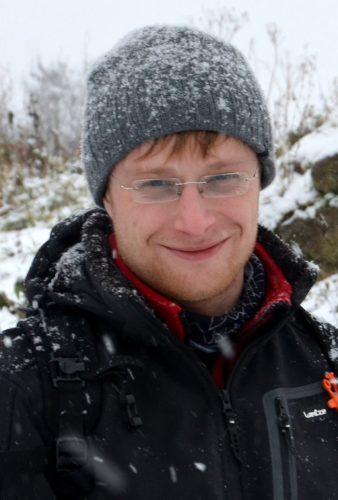- Academic title:
- PhD
- Position:
- Adjunct
- Unit:
- Ecophysiology and Behavioral Ecology

- PhD: 2017, Nicolaus Copernicus University, Faculty of Biology and Environment Protection, Toruń
- MSc: 2010, University of Life Science, Faculty of Forestry, Poznań
My research interest focuses on the evolutionary ecology of small mammals (rodents and bats). In this context I am conducting ecological studies, physiological measurements and behavioural observations of wild animals. In my scientific work, I use experimental and correlational as well as comparative study technics. Since they are the basic unit and a subject to evolution, I focus my studies mainly on individual traits and the individual life histories. Although I mainly conduct basic research, the knowledge gained during their implementation finds its application in the effective protection of the population of wild animals.
Currently:
- in cooperation with scientists from Univeristy of Białystok we study costs of reproduction in edible dormice (Glis glis).
- in cooperation with scientists from Forest Research Institute and Univeristy of Białystok, we test the models that explain association between animal personality and physiology on example of water vole (Microtus oeconomus).
- in cooperation with scientists from Forest Research Institute, Univeristy of Białystok and University of Warsaw, we conduct the study that aims to answer the question: whether the space use by arboreal rodents (edible dormouse Glis glis) is associeted with personality?
- in cooperation with scientists from Univeristy of Białystok, we study the impact of fluctuating food resources on the physiological traits and life history traits of yellow-necked mice (Apodemus flavicollis) in the context of climate change.
- in cooperation with scientists from University of Huddersfield and Museum and Institute of Zoology PAS, we conduct the study that aims to estimate heritability of most effective energy saving strategy, the heterothermy in free-living yellow-necked mouse Apodemus flavicollis population.
- 2013 - 2-weeks, Blaustein Institute for Desert Research, Sede Boqer Campus of Ben GurionUniversity of the Negev, Israel
2020-2023: National Science Center (2019/35/D/NZ8/03626): "The evolutionary trade-off between survival and reproduction in yellow-necked mice characterized by distinct thermoregulatory strategies." Principal investigator
2018-2021: Forest Research Institute-intramural grant: "The impact of fluctuating resources on life histories, hibernation and fitness of arboreal rodents on the example of dormouse (Glis glis)." Key Investigator
2015: Nicolaus Copernicus University-intramural grant for young investigator: "Hormonal regulation of phenotypic flexibility in energetics of small mammals." Principal investigator
2014-2018: National Science Center (2014/13/N/NZ8/02473): "Are intraindividual variations in body temperature of small homeotherms beneficial and heritable?" Principal investigator
2014: Nicolaus Copernicus University-intramural grant for young investigator: "Correlation between the maximum capacity for heat production and ability to spentaneously arouse from torpor in house mice." Principal investigator
2011-2016: National Science Center (2011/01/B/NZ8/00049): "Seasonal changes in the phenotypic flexibility of small mammals. Is heterothermy an alternative to high phenotypic flexibility?" Key Investigator
2020: Certificate of Reviewing awarded by the editors of Journal of Thermal Biology in recognition of the review contributed to the journal
2019-2022: Member of the Scientific Council of the Mammal Research Institute Polish Academy of Sciences
2012/2013, 2013/2014, 2014/2015: doctoral scholarship for the best PhD students of Nicolaus Copernicus University
2014: Travel grant to attend the annual Society for Integrative and Comparative Biology meeting